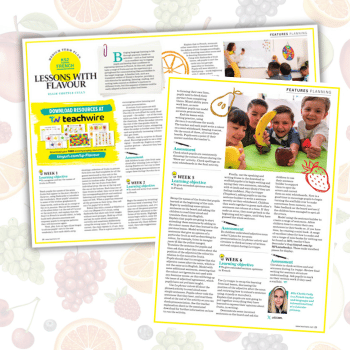Resources To Help Primary Teachers Develop MFL Knowledge

Afraid of French? Scared of Spanish? Don't worry – there's plenty of help out there

- by Dr Amanda Barton
- Freelance writer and teacher educator at the University of Manchester

Teaching a foreign language can be a scary prospect, especially if your vocabulary is limited to what you can remember from a rusty GCSE or ordering a range of alcoholic beverages in sunny climes.
So, how can you ensure that your subject knowledge is up to teaching children to listen, speak, read and write in a foreign language, and to teaching the vocabulary and grammar associated with topics ranging from pets to musical instruments?
To begin with, rest assured that it does not take much to convince a class of children that you have near-native fluency in the language. Confidence is key and teaching a foreign language offers multiple opportunities for having fun, so at least you shouldn’t be struggling with the groans of children who don’t want to learn.
Drip-feed approach
You may be lucky enough to have regular visits from an MFL specialist, perhaps from one of your feeder secondary schools. If so, make a concerted effort to learn from them, perhaps recording the lesson so that you can listen back to it or watch it afterwards. Even if the main input comes from a specialist, it’s important that you drip feed your children the language in between the specialist’s lessons, such as when you’re doing the register.
This is where you can practise your new language and build up your confidence; ‘little and often’ is the key to developing good language skills for both you and your children.
Observing colleagues in other schools where the foreign language is taught will help to equip you not only with the language you need but also a range of strategies for teaching it. If this is not possible, there are lots of self-study resources to extend your subject knowledge.
Teach yourself
If you can put aside a regular time to complete an online course – and have the self-discipline – the Open University offers free courses in a range of languages including French, Spanish, German, Italian and Mandarin Chinese (open.edu/openlearn). Duolingo (duolingo.com) is a free, game-based app that can become addictive as it rewards you with points when you complete tasks. Some commercial resources are aimed specifically at non-specialists and include CDs with recordings of native speakers to help improve your speaking and listening skills. Teach Yourself French for Primary School Teachers (McLachlan, 2010) is one of these. Teaching Primary French and Teaching Primary Spanish (Barton & McLachlan, 2016) are books based on easy-to-follow lesson plans that cover a range of topics and include tips on pronunciation as well as suggestions on how you can teach the language through other areas of the curriculum.
Correct pronunciation is a common cause of anxiety. As you’re the main model of spoken language for your children, it is essential that your pronunciation is accurate. Download podcasts from Light Bulb Languages (lightbulblanguages.co.uk) so that you can make your good use of your daily commute as well as entertain your fellow passengers.
Learn together
There is a general assumption that the teacher is meant to be the fount of all knowledge, but there is a lot to be gained from learning alongside your pupils. Keep a beginners’ bilingual dictionary to hand in your classroom, such as the Collins First Time dictionary; there is no shame in looking up unknown words together. If you have any bilingual pupils in your class, draw on their knowledge as experts, remembering that their written knowledge of the language is not necessarily as accurate as their spoken knowledge. Your own skills will be supported if you can invest in a resource pack including DVDs or CDs that provide all of you with a model of pronunciation, such as the Early Start series; this has the added advantage of featuring primary-aged native speakers in different cultural contexts.
The BBC has an extensive languages area in French, Spanish and Mandarin (bbc.co.uk/languages). Here you can find lots of activities to progress your own language and engage your children, such as audio clips, subtitled songs, videos and interactive matching games played against the clock.
If you want to further your own knowledge of French or German, visit the BBC GCSE Bitesize page, where activities are grouped into the four skill areas – listening, speaking, reading and writing. You can also revise grammar rules here, as well as attempting sample GCSE exam papers. And remember that teaching cultural understanding is part of the KS2 programme of study as well. So you now have an excellent excuse to book that overseas holiday, purely for your own professional development.
Dr Amanda Barton is a freelance writer, educational consultant and teacher trainer. She is co-author of Teaching Primary French and Teaching Primary Spanish. Browse our resources for European Day Of Languages.










